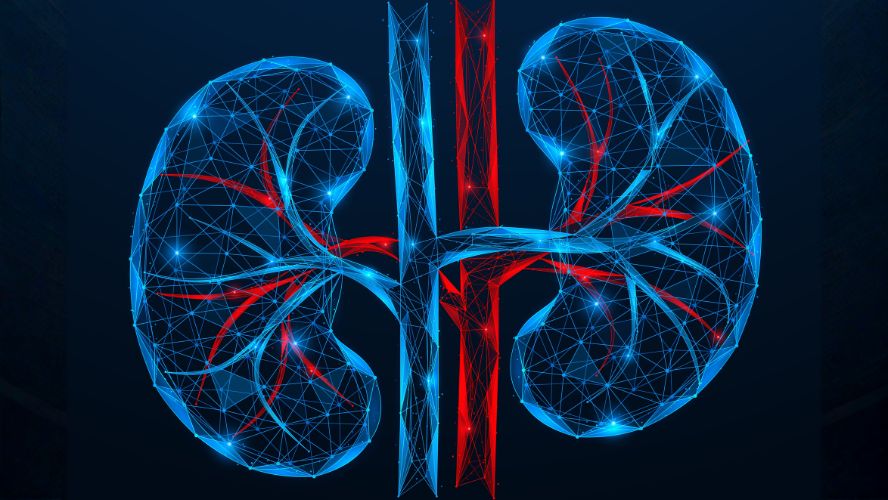
Heart disease is the leading cause of death for people on dialysis, yet few therapies have shown clear success in reducing that risk. Despite facing cardiovascular risks up to 20 times higher than the general population, individuals with kidney failure have had limited options to protect their heart health. Now, results of a new international study published in The New England Journal of Medicine offer a promising path forward.
The PISCES trial, also known as the Protection against Incidences of Serious Cardiovascular Events Study with daily fish oil supplementation in dialysis patients, was led by Dr. Charmaine E. Lok of UHN and the University of Toronto. The study followed 1,228 patients receiving hemodialysis at 26 sites in Canada and Australia. Participants were randomly given either daily fish oil capsules or placebo capsules and followed for 3.5 years.
The fish oil capsules contained omega-3 fatty acids, specifically EPA (eicosapentaenoic acid) and DHA (docosahexaenoic acid). These are natural substances found in fish that help reduce inflammation, prevent blood clots, and support heart rhythm. People on dialysis often have very low levels of these nutrients, which may increase their risk of heart problems. By taking fish oil, patients may be restoring a healthier balance in their bodies.
The results were striking. Patients who took fish oil had nearly half the number of serious heart-related events—including heart attacks, strokes, amputations due to poor circulation, and deaths from heart disease—compared to those who took the placebo. Even patients who had already experienced a heart event saw benefits.
“While other heart protective medications have been shown to be beneficial in the general population, they haven’t consistently reduced cardiovascular events in the hemodialysis population,” said Dr. Lok. “Fish oil supplementation is a simple, well-tolerated intervention that could have a meaningful impact.”
Importantly, the study found no increase in bleeding or other serious side effects, which was once a concern with omega-3 supplements. Blood tests showed that patients taking fish oil had higher levels of EPA and DHA, confirming that the capsules were absorbed and used by the body.
Further research is underway to better understand how fish oil works in patients receiving hemodialysis. But for now, the findings suggest that daily supplementation of specific omega-3 could be a safe and effective way to protect the hearts of people on hemodialysis.
Dr. Charmaine E. Lok, lead and corresponding author of the study, is a Senior Scientist at UHN and Professor at the Faculty of Medicine, University of Toronto. She also serves as Medical Director of the Hemodialysis Program at UHN.
This work was supported by the Heart and Stroke Foundation of Canada, Lawson Health Research Institute, Peter Munk Cardiac Care Innovation Fund, Kidney CARE Network International, the National Health and Medical Research Council, in-kind contributions from DSM (formerly Ocean Nutrition Canada), and operational support by UHN Foundation. The study also received a philanthropic donation from Mr. Alexander Epstein. This work was in part supported by a personnel award (Dr. Charmaine Lok) from the Heart and Stroke Foundation, Ontario Provincial Office.
Lok CE, Farkouh M, Hemmelgarn BR, Moist LM, Polkinghorne KR, Tomlinson G, Tam P, Tonelli M, Udell JA. Fish-Oil Supplementation and Cardiovascular Events in Patients Receiving Hemodialysis. N Engl J Med. 2025 Nov 7. doi: 10.1056/NEJMoa2513032.




